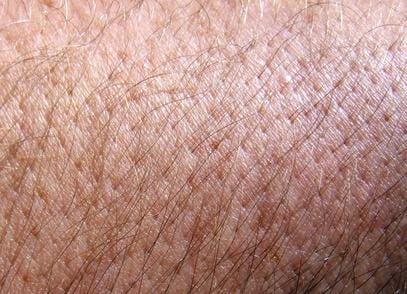Some beauty products such as lotions and skin peels contain glycolic acid, a form of alpha hydroxy acid, purported to help fight wrinkles and even out skin tone. Some risks are involved with using products that contain glycolic acid or other AHAs, though, including increased sensitivity to the sun. Products that contain AHAs must be labeled, according to the FDA, and must detail any risks to the user.
Increased Risk of Sunburn
Oddly enough, a product used to reverse sun damage actually increases the risk of it. Testing done by the FDA found that people’s sensitivity to the sun and ultraviolet light increased by 18 percent after they used a product containing glycolic acid for four weeks. If you do use a lotion or other skin care product with glycolic acid in it, make sure you apply sunscreen every morning. Wear a hat and other clothing to further protect your skin from the rays of the sun. Fortunately, increased sun sensitivity is not a permanent side effect of using glycolic acid and other AHAs. Your skin’s sensitivity to the sun should return to normal about a week after you stop using the product.
Irritated Skin
Some people experience redness and irritation of their skin after using products that contain glycolic acid. The redness can last for weeks afterward. The irritation includes a burning or stinging feeling when the product is applied.
Sometimes, irritation or skin weakening can occur if the product is used in combination with another product. For instance, if you use a product that contains glycolic acid and then get waxed in the same area, pieces of skin can come off along with your hair, according to a report from WebMD. In some cases, use of glycolic acid in a chemical peel can cause scarring.
Skin Lightening
Another use for glycolic acid is to lighten liver spots and freckles. Unfortunately, it can also cause unwanted skin discoloration and lightening. The change in skin color usually cannot be reversed. Your risk of skin discoloration from glycolic acid is higher if you are on birth control or are or have been pregnant. You may also be at increased risk for discoloration if you have a family history of facial discoloration.
Photo Credit
- skin image by Robert Kelly from Fotolia.com





